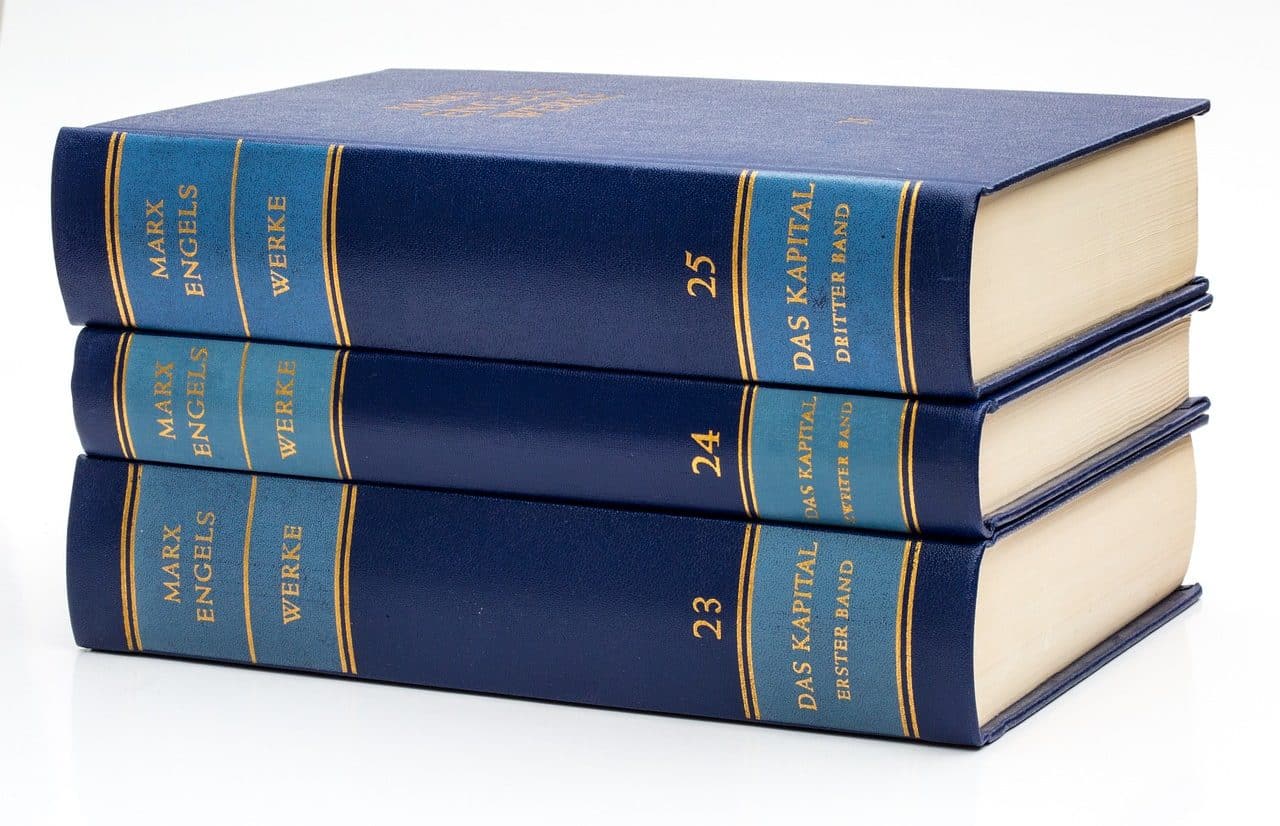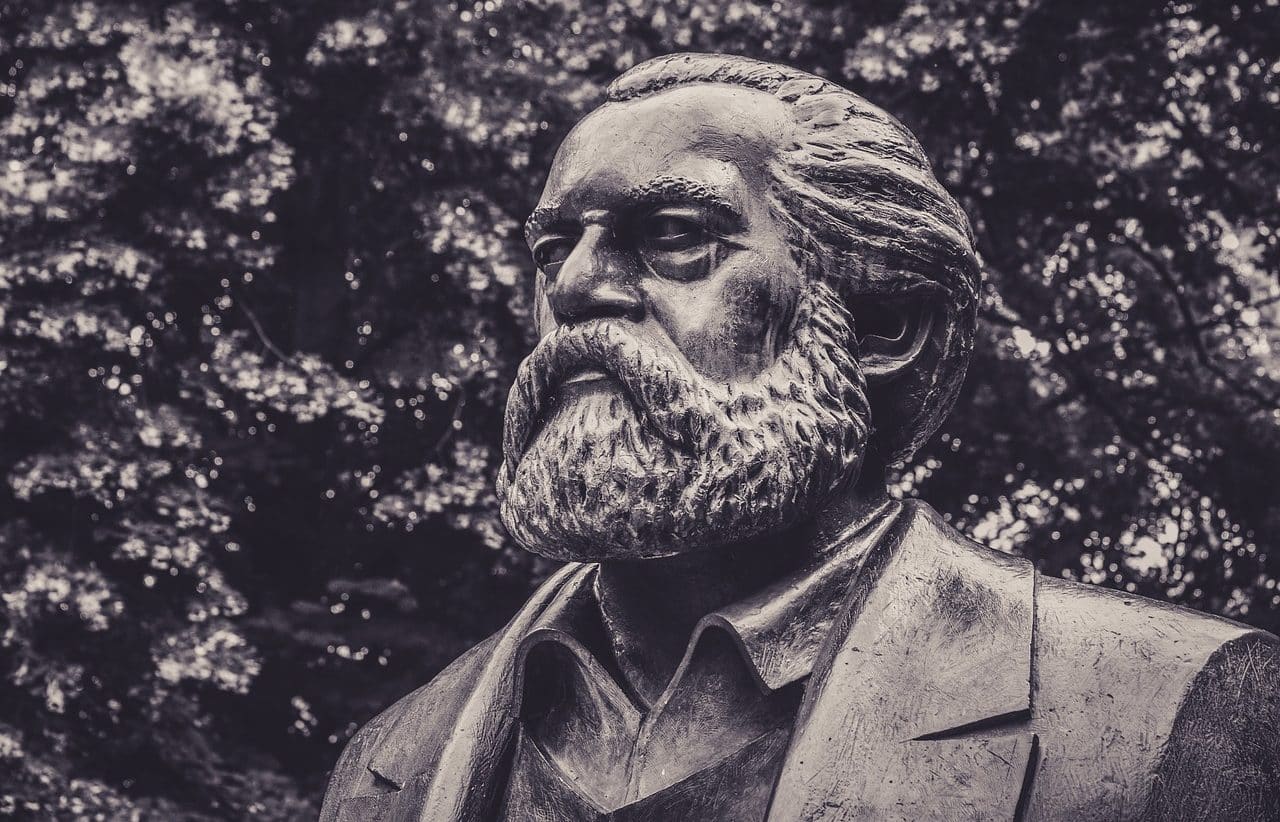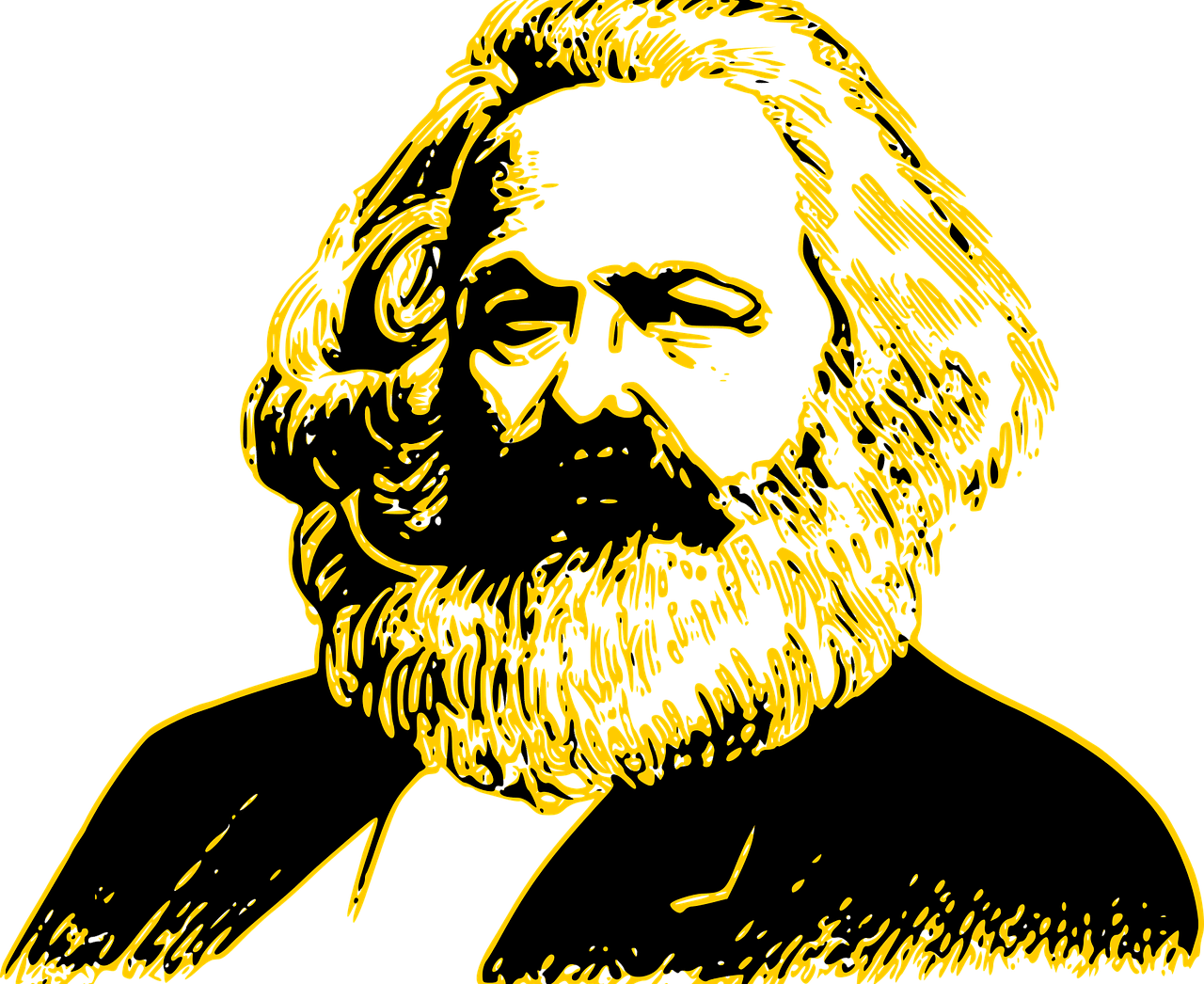
Karl Marx dedicated himself to analyzing economic history.
Karl Marx is one of the most influential thinkers in world history. He is considered the founder of historical materialism , scientific socialism and Marxism , doctrines and movements that he promoted together with his collaborator Friedrich Engels .
Marx 's ideas were key in the development of areas of knowledge such as economics , sociology , political science and philosophy. In addition to his theoretical work, he also became involved in political activity and worked as a journalist.
Your life
Karl Heinrich Marx was born on May 5, 1818 in Trier , then part of the Kingdom of Prussia . Son of Heinrich Marx and Henriette Pressburg , he was the third of nine siblings in a family of Jewish origin.
Marx was educated at home until the age of 12, when he entered the Trier Institute . He then continued his training at the University of Bonn and the University of Berlin , studying Law .
At the age of 18 he began his romantic relationship with Jenny von Westphalen , whom he married in 1843 and had seven children. Attracted by history and philosophy , Marx soon became interested in the work of Georg Wilhelm Friedrich Hegel ( 1770 – 1831 ), which he analyzed critically but highlighted its dialectic.
"Difference between the philosophy of nature of Democritus and that of Epicurus" was Marx 's doctoral thesis, which he presented in 1841 at the University of Jena . The following year he settled in Cologne to work as a journalist, beginning to show his closeness to socialism .
During his stay in Cologne , Marx published "On the Jewish Question" and "Critique of Hegel's Philosophy of Right." In 1843 he emigrated to France , settling in Paris to work on the Franco-German Annals . There he met Engels , with whom he soon began to write and thus "The Holy Family" emerged in 1844 .
«Economic and philosophical manuscripts» y«Thesis on Feuerbach» son otras obras de su época en Paris. Expulsado del territorio galo por su activismo socialista, en 1845 se trasladó a Brussels, la capital de Belgium. Allí la dupla Marx-Engels dio forma al «Manifesto of the Communist Party» e impulsó el comunismo revolucionario.
Accused of financing revolutionary acts, he was arrested and eventually left Belgium . After a period in Paris , he returned to Cologne until he had to leave Germany again, settling briefly in Paris again and then moving to London ( England ), where he arrived in 1849 .
"The 18th Brumaire of Louis Bonaparte" , "Contribution to the Critique of Political Economy" and the first volumes of "Capital" date from this stage. After years of suffering from liver problems and without recovering from the blow of his wife's death in 1881 , Karl Marx died on March 14, 1883 in the British capital, suffering from pleuritis and bronchitis. His remains rest in Highgate Cemetery .

The productive forces are, according to Marx, those means that allow us to produce what is necessary for subsistence.
Marx's main ideas
Throughout his career, Marx developed important concepts that influenced other thinkers and inspired political movements. Already in his youth he noticed that philosophy used to offer different interpretations of the world although without the intention of transforming it: that is why he criticized idealism and contemplative materialism above all and built what is known as historical materialism .
Historical materialism is understood to be the conceptual framework of the philosophical system known today as Marxism . Differing from Hegel , Marx maintained that history is not determined by the spirit but by an infrastructure formed by modes of production and economic relations.
For Marx , the contradiction that exists between the relations of production and the productive forces explains revolutions . This contradiction, typical of capitalism , leads to the theory of class struggle : according to Marx , the social division of labor causes classes to emerge with antagonistic interests according to the position they occupy in the mode of production.
Continuing with this line, Marx affirmed that communism was the way to achieve the satisfaction of human needs. The proletariat , therefore, had to promote the revolution to abolish the division between an exploiting social class (which had private ownership of the means of production) and the workers who suffered exploitation (who supported the exploiters through surplus labor). ). This classless society would be achieved after the dictatorship of the proletariat , which would be reached after the seizure of power by the working class.

For Marx, the bourgeoisie is the class that owns the means of production.
Labor theory of value
The labor theory of value is a central element of Marxist philosophy. According to this precept, the value of a product or service depends on the amount of work time socially necessary to produce it. Marx stated that the relations of production and exchange did not occur as relations between people but as social relations between things (commodities and money). That is why he alluded to a fetishism of merchandise .
There is work that is required to produce the goods necessary for the worker 's subsistence and then surplus work: surplus labor . Simplifying, it can be said that the worker, with his labor power, creates a value that exceeds the value of that labor power. This surplus value is appropriated by the ruling class and is the key to capitalist accumulation .
These relations of production cause alienation to arise. Marxism expresses that, according to the capitalist view, the worker stops being a person and becomes a commodity. In other words, the worker is the labor force that has an equivalent in money.
In short, Marxism considers capitalism to be a system of exploitation of man by man. After a process of original accumulation that occurred through violence and that allowed the privatization of the means of production, society was divided into classes: there are capitalists who have money to buy the labor of workers, who - not have means of production - are forced to sell their labor power to survive.
The money that workers receive is less than what they generate with their work. That difference is the surplus value that the capitalist keeps. Marx concludes that liberation can only occur with revolution to establish the dictatorship of the proletariat as a preliminary step to communism and its classless society.
